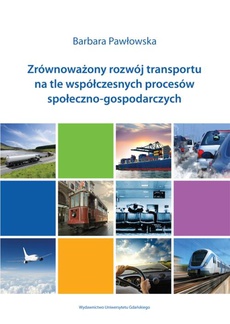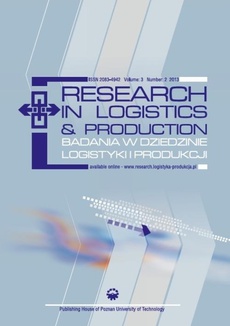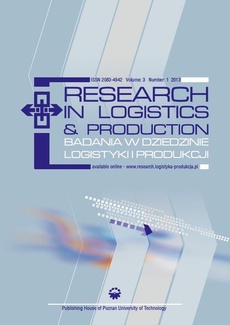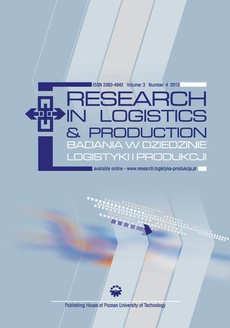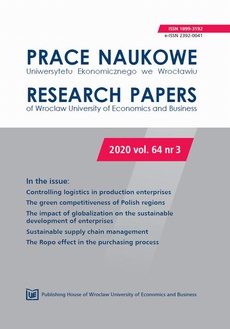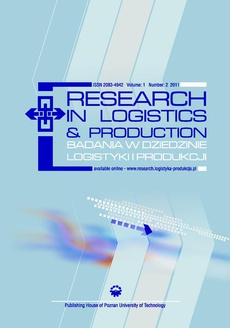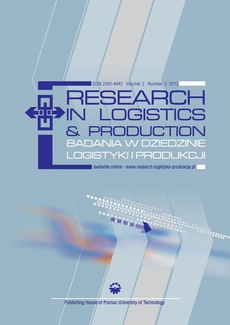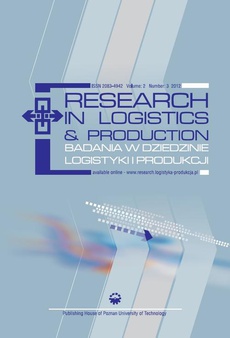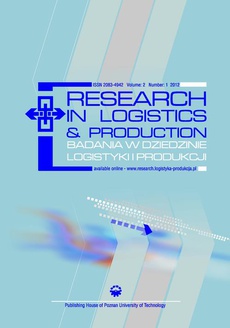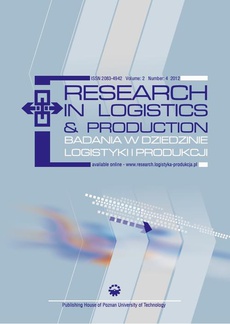POLECAMY
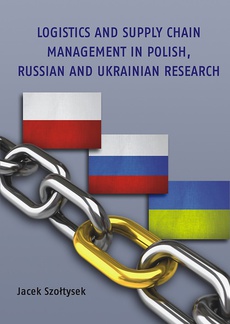
-17%
Logistics and Supply Chain Management in Polish, Russian and Ukrainian Research
Redakcja:
Format:
pdf, ibuk
The twenty first century is acknowledged as the century of information, innovation and generally functioning within the environment, which has been co-created by technological development and globalisation. Their impact on economy is crucial, and simultaneously they are forcing change with respect to organisations’ resources. Increased significance of a human, his superior role to management processes, is one of reasons behind emergence of social logistics. Materialisation of this field of deliberations translates into transformation of view on some logistics’ applications, requiring greater social sensitivity from decision makers.
Such – albeit not all – changes in perception of market mechanisms caused theoreticians and practitioners of logistics to widen the scope of their interests – from regulation of fundamental activities or logistic, transport or technological processes, through management of supply chains or networks, to recognition of market mechanisms and logistics position is shaping them. The attention may also revolve around new unconventional applications of logistics, fitting mainly into domain of social logistics (e.g. issues of humanitarian aid or blood donation organisations). Finally, the support of educational processes, aimed at assuring reinforcement of logistics staffing with new generations of experts. All the aforementioned problematic areas were addressed in presented deliberations. Thus, such take on authors’ interests have determined the structure of the present paper. The concept of dividing the content into areas of reflections, allows finding parallels between having a discussion and reasoning. Generally, one can state, that areas of interest are related to the type of higher education institution represented, needs of economic environment as well as scientific interests of scientific supervisors – professors. The presented thematic diversity of articles, gathered within a single publication, is in my opinion a benefit passed onto hands of Readers of the book, which might become an inspiration to undertake new research or serve as information as to which research centre could be called on with proposition of collaboration or with a factual query. Those are also the additional aims of the presented publication.
| Rok wydania | 2011 |
|---|---|
| Liczba stron | 171 |
| Kategoria | Logistyka |
| Wydawca | Wydawnictwo Uniwersytetu Ekonomicznego w Katowicach |
| ISBN-13 | 978-83-7246-744-7 |
| Język publikacji | angielski |
| Informacja o sprzedawcy | ePWN sp. z o.o. |
Ciekawe propozycje
Spis treści
| PREFACE | 7 |
| Chapter One: LOGISTICS IN ENTERPRISES | 11 |
| Agnieszka Gierczycka-Bednarek, Adam Wasiołka. The EU regional policy in developing innovative regions in Europe | 11 |
| Aleksandra Nowakowska, Joanna Nowakowska-Grunt. Implementation of VMI in inventory management | 20 |
| Aleksandra Nowakowska, Joanna Nowakowska-Grunt. Efficiency increase by applying VMI with an example of a shoe making company | 25 |
| Anna Wiśniewska-Sałek. Strategic intelligence as an opportunity for development of enterprises under conditions of globalization | 29 |
| REFERENCES | 39 |
| Chapter Two: LOGISTICS IN SUPPLY CHAINS | 43 |
| Beata Mucha. The concept of a lean supply chain and SMEs’ collaboration within supply chains | 43 |
| Ewa Płaczek. Logistics service providers and their business models | 52 |
| REFERENCES | 62 |
| Chapter Three: TRANSPORTATION ISSUES | 65 |
| Rafał Burdzik. Research methodology into the relationship between local logistics and transport systems | 65 |
| Eugene Korovyakovsky, Yulia Panova. Making decision on mechanization of maritime container terminal | 73 |
| Robert Sałek. Efficiency of internal transportation layouts in logistics processes | 81 |
| REFERENCES | 98 |
| Chapter Four: SOCIAL LOGISTICS | 103 |
| Karina Hermann. Logistics centers as a factor of economic development of cities and regions | 103 |
| Jakub W. Jaroszyński. Supply chains of humanitarian aid in context of dilemmas connected with application of selected concepts applied to business supply chains management | 114 |
| Agnieszka Jonkis. Formation of urban transportation behaviour using benchmarking tools | 128 |
| Jacek Szołtysek, Sebastian Twaróg. Keywords analysis in polish literature and foreign literature, used in identifying logistics of blood management | 142 |
| REFERENCES | 153 |
| Chapter Five: EDUCATIONS AND LOGISTICS | 157 |
| Alexey Kotenko, Olga Nikiforova. Organization of business games in field of cargo transportation based on a specialized training center | 157 |
| Stella Shapoval, ?arya K?tashynskaya, Tao Wang. Application of logistical principles in higher education management | 161 |
| REFERENCES | 170 |
| AUTHORS | 171 |










